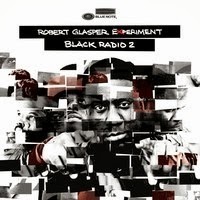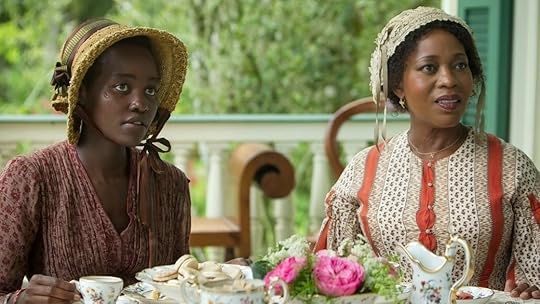Mark Anthony Neal's Blog, page 865
September 27, 2013
Robert Glasper Experiment: "I Stand Alone" - feat. Common, Patrick Stump & Michael Eric Dyson
Published on September 27, 2013 14:18
September 26, 2013
'Homophobia in Hip-Hop': A Film Short from Byron Hurt
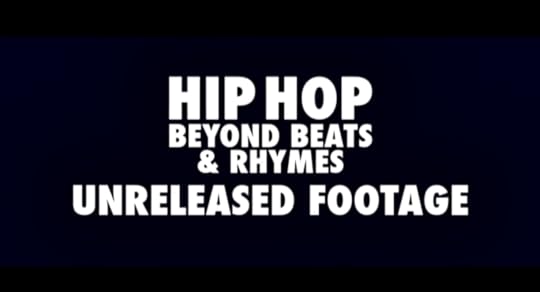 Byron Hurt
Byron HurtIn a radio interview earlier this month, the legendary hip-hop personality DJ Mister Cee created an enormous stir when he publicly addressed his previous arrests for soliciting trans women prosititutes for oral sex. He also tearfully discussed his sexual preferences and behavior on Hot 97 FM, the New York City-based hip-hop radio station where he is employed. Mister Cee's conversation with the station's program manager, Ebro Darden, quickly went viral, and became a trending topic on Twitter and social media. The iconic DJ's admission, on perhaps the biggest hip-hop media platform in the world, re-invigorated old conversations about masculinity and sexual identity in hip-hop culture – a culture known for its heavy-handed homophobia. This BBRi video features straight, gay, and non-gender conforming men in a conversation about homophobia in hip-hop.
Published on September 26, 2013 05:40
September 25, 2013
'iamOther Presents StereoTypes": "Good Hair"
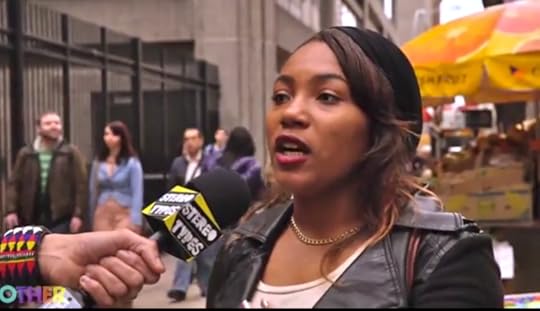 iamOther | StereoTypes
iamOther | StereoTypesKinky, nappy, or silken flow? Afros and weaves vs. "white people hair." What is our obsession with "good hair" and how does it effect our perceptions of what is considered attractive? Ryan Hall hits the streets of New York to find out.
Published on September 25, 2013 12:18
Blank on Blank: Janis Joplin on Rejection
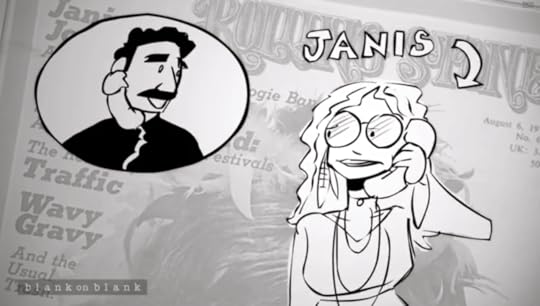 Blank on Blank | PBS Digital Studios
Blank on Blank | PBS Digital Studios"In my insides, it really hurts if someone doesn't like me. It's silly."
- Janis Joplin
Interview by Howard Smith
September 30, 1970. By phone
TheSmithTapes.com
Executive Producer: David Gerlach
Animator: Patrick Smith
Published on September 25, 2013 11:58
September 24, 2013
The "I Am Troy" Call to Action by Benjamin Todd Jealous
 The "I Am Troy" Call to Action
by Benjamin Todd Jealous | special to NewBlackMan (in Exile)
The "I Am Troy" Call to Action
by Benjamin Todd Jealous | special to NewBlackMan (in Exile)Two years ago last week, the state of Georgia ignored the facts, doubts and pleas of hundreds of thousands of people and killed Troy Anthony Davis. Today, on the anniversary of his execution, we rededicate ourselves to ending the immoral, biased and ineffective practice of capital punishment. For 15 years, we fought alongside Troy to clear his name for the killing of Savannah Police Officer Mark Allen MacPhail. Troy remained adamant about his innocence to his last breath. As explained in the new book I Am Troy Davis, by author Jen Marlowe and Troy's sister, Martina Davis-Correia, the case against Troy lacked conclusive evidence after many of the key witnesses recanted testimony from the time of the original trial.
In the last weeks of Troy's life, the Georgia State Board of Pardons and Paroles received 663,000 petitions from people imploring the group to reconsider the execution given the sheer amount of doubt surrounding the case. World figures, including Pope Benedict XVI and former U.S. President Jimmy Carter, human rights groups and commentators urged the execution to be halted -- all to no avail.
In the hours before his death, the NAACP held a rally and lobbied the Department of Justice to intervene on the grounds of a civil rights violation. The glimpses of sadness and quiet resolve I saw on the faces of Troy's family when his death became imminent will stay with me forever. The last time I saw Troy, he told me "This movement started before me, and it needs to continue, no matter what, until we destroy the machinery of death."
While many of the supporters who stood in solidarity with Troy have put away their signs and returned home, the battle to end the shameful practice of capital punishment wages on in his name. Side by side with Troy's family, we remain on the frontlines of this fight to abolish a system that is ineffective and steeped in racial bias.
Racial disparities pervade every component of the justice system. A report from Amnesty International concluded that 77 percent of people executed since 1977 were people convicted of crimes involving white victims, compared to only 15 percent of people executed for killing blacks. A full 42 percent of the 3,100 inmates on death row are people of color.
Furthermore, we know that the death penalty is a poor deterrent of crime. FBI data shows that all 14 states without capital punishment in 2008 had homicide rates at or below the national rate.
The only effective way to deter killings in our streets is to ensure justice is swift and certain. In order to do so, we must ensure both that we have police leadership that builds strong partnerships and trust with all communities and also that they have enough officers and detectives to ensure every homicide in every community is responded to with the requisite resources to find and catch killers quickly.
Since Troy's death, we have made definitive strides in our effort to end the death penalty. We have worked with a diverse and multifaceted coalition of advocates including Amnesty International and the National Coalition to Repeal the Death Penalty fix our nation's broken justice system. Last year our work led to Connecticut repealing the death penalty. This year, Maryland became the first state south of the Mason-Dixon Line to do the same. Those two states now join New Jersey, New York, New Mexico and Illinois as the fifth and sixth state in six years, and the 17th and 18th in the nation to abolish the death penalty.
Our strategy is clear. Our strategy is simple. We will outlaw capital punishment in a majority of states, and then we will go to the United States Supreme Court and make the argument that the punishment is cruel by its very nature but also unusual because most states have passed laws against it.
"I Am Troy" reminds us that each year September 21 will serve as both a solemn anniversary and a call to action. It is and will continue to be an annual reminder that justice and common sense we end this brutal practice of capital punishment.
***
Benjamin Todd Jealous is the president and CEO of the national NAACP. This column was first published in USA TODAY.
Contact: Ben Wrobel 917-846-0658 bwrobel@naacpnet.org@NAACPPress
Published on September 24, 2013 16:21
BaddDDD Sonia Sanchez: A Documentary Film (a-work-in-progress)
 BaddDDD Sonia Sanchez: A new film by Barbara Attie, Janet Goldwater and Sabrina Schmidt Gordon, with musical score by Evan Solot SUPPORT
BaddDDD Sonia Sanchez: A new film by Barbara Attie, Janet Goldwater and Sabrina Schmidt Gordon, with musical score by Evan Solot SUPPORT
Published on September 24, 2013 11:29
Left of Black S4:E2 | ‘For Colored Boys' with Director Stacey Muhammad
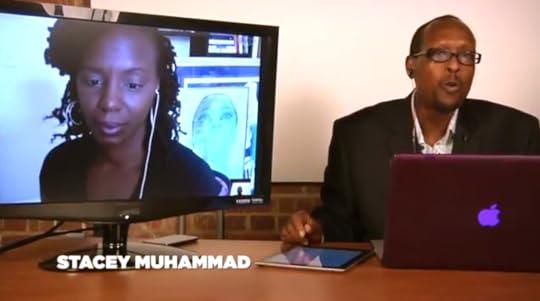 Left of Black S4:E2 | ‘For Colored Boys” with Director Stacey Muhammad
Left of Black S4:E2 | ‘For Colored Boys” with Director Stacey Muhammad
Left of Black host and Duke University Professor Mark Anthony Neal is joined, via Skype, by writer, producer and director Stacey Muhammad, who discusses her new web-based dramatic series For Colored Boys, REDEMPTION, which examines contemporary Black Masculinity through the lives of Benjamin Boyd, Sr. (Rob Morgan), who is returning “home” after years of incarceration, and his son Benjamin, Jr., portrayed by Julito McCullum (The Wire). Neal and Muhammad also converse about the challenges faced by independent filmmakers.
Stacey Muhammad is an award winning filmmaker and music video director who has written, directed and produced a series of award winning short films of both the narrative and documentary genres. Her work includes multi-media projects, music videos and short form films including, the award winning I AM SEAN BELL, black boys speak and Out of our Right Minds, Trauma, Depression and the Black Woman.Left of Black is a weekly Webcast hosted by Mark Anthony Neal and produced in collaboration with the John Hope Franklin Center at Duke University.
***
Episodes of Left of Black are also available for free download in @ iTunes U
***
Follow Stacey Muhammad on Twitter: @StaceyMuhammadFollow Left of Black on Twitter: @LeftofBlack Follow Mark Anthony Neal on Twitter: @NewBlackMan
Published on September 24, 2013 08:09
On 'Perfect' Victims and 'Ideal' Predators by Esther Armah
 On 'Perfect' Victims and 'Ideal' Predators
by Esther Armah | special to NewBlackMan (in Exile)
On 'Perfect' Victims and 'Ideal' Predators
by Esther Armah | special to NewBlackMan (in Exile)Two suicides. One, a convicted rapist, the other a rape victim. Both made headlines. Both unrelated. The convicted rapist was Ariel Castro, the Cleveland man who kidnapped, raped and tortured three girls – now women – for a decade. The other was 14-year-old rape victim Cherice Moralez, who committed suicide two years after her rape by Montana teacher Stacey Rambold. Both incidence offer moments to pause and tackle a call to decriminalize sex between underage students and teachers, and to challenge the ways we continue to create and require perfect victims and ideal predators when it comes to sexual violence.
Former lawyer and writer Betty Krasik penned an opinion piece in The Washington Post,"The unintended consequences of laws addressing sex between teachers and students"calling for urgent discussion on the decriminalization of sex between underage students and their teachers referencing the Montana case. That case hit the headlines due to the leniency of the 30-day sentence given to Rambold by district judge G. Todd Baugh. Krasik writes: "I don't believe that all sexual conduct between underage students and teachers should necessarily be classified as rape, and I believe that absent extenuating circumstances, consensual sexual activity between teachers and students should not be criminalized."
The challenge here is we live in a society that routinely does exactly that—classifies sexual conduct between underage students and teachers as sex, and fails again and again to acknowledge it as sexual assault. The challenge has also been to recognize that rape is not an act of sex, it is the abuse of power. With educational establishments, the response to accusations of rape, sexual assault and misconduct remind us how much society dismisses victims' accusations and too often – through silencing and shaming – supports the accused teacher. Statistics reveal the numbers of reported rapes are low, those that lead to prosecution lower and those that end in conviction even lower.
The under-reporting of rape, the narratives of victims being warned of how their actions may impact their aggressor, the concern with how the aggressor's lives may be damaged all contribute to the myriad ways society practices, protects and promotes rape culture. Krasik's arguments contribute to that protection. The response of some educational establishments to allegations of rape, sexual assault suggest what is needed is greater discussion around the classification of rape and the nuanced complex ways society quietly terrorizes those who seek justice through our judicial system.
Her piece continues: "The point is that there is a vast and extremely nuanced continuum of sexual interactions involving teachers and students, ranging from flirtation to mutual lust to harassment to predatory behavior. Painting all of these behaviors with the same brush sends a damaging message to students and sets the stage for hypocrisy and distortion of the truth." Krasik fails to recognize that it is rape culture that offers all these nuanced ways to describe such interactions. Predatory behavior becomes categorized as mutual lust. It is how victims -- girls and boys -- are made emotionally responsible for the abuse of power or the sexually deviant behavior of predators. Such comments serve a rape culture already so well serviced by her former profession -- the law upholds, protects, sustains rape culture.
Legislation does not resolve the emotional trauma of the wound of rape, nor is the judiciary solely responsible for rape culture, but it can re-traumatize due to the myriad ways a sexual assault or rape is trivialized. Rape culture normalizes sexual deviance and violence, deflects blame for such behavior onto victims and institutionalizes the culture via the legislative process.
Krasik's piece continues: "Many teenagers are, biologically speaking, sexually mature." In the Montana case, District Judge Baugh said 14-year-old Cherice did not look her chronological age. Sexual maturity has nothing to do with rape. Whether a girl is 13 and looks older, or whether she is a woman of 30 or 60 -- her experience has no bearing on whether she was raped. It is extraordinary that in 2013 these issues -- neither new or news -- continue to need defending and explaining.
Rape culture is global, as the protests in India following the appalling rape of a student on a bus and the battles in South Africa reveal. In London last month during the sentencing of 41- year-old Neil Wilson, who had admitted sexually assaulting a 13-year-old girl, prosecuting barrister Robert Colover described the 13-year-old sexual assault victim in these terms: "The girl is predatory in all her actions and she is sexually experienced," according to a BBC News online report. The judge, Nigel Peters, said when deciding Wilson's punishment, he had taken into account the prosecution's comments that the girl looked and behaved older than she was. Wilson's eight-month jail term was suspended for two years. Judge Baugh said 14-year-old Cherice was equally 'in control' of the situation. Both barrister and judge later apologized.
It is precisely this language that contributes to a judicial experience so many sexual assault and rape survivors describe as re-traumatizing. The argument within the law is innocent until proven guilty. With sexual violence accusations, the victim routinely has to prove her innocence to a standard set by a society that judges women's' morality and sexuality. Navigating the tragedy, trauma and legacy of rape are a battlefield few are equipped to handle. Equally problematic, the absence of consequence for those who represent the law -- and arguably -- justice -- who become the face of re-traumatizing. The statements by the Montana judge and the London barrister contribute to the public shaming of a victim.
Not enough open discussion exists around the efficacy of the penalties barristers and judges face after such comments. Apologies from judges and barristers based on outrage and protest are short term. Such apologies fail to acknowledge the impact on a victim of statements that reduce trauma to trivia. In addition, there is cumulative trauma; the trauma of the violence, that of the legislative process and the legacy of both. That accumulation requires further focus, funds, discussion and action.
'Emotional justice' is a term I created. I explore the toll of injustice on our emotionality and the legacy of untreated trauma which can become a generational inheritance that shapes how we move through the world, the relationships we build, and the institutions we create.
'Emotional Justice' creates a process for a journey from trauma to triumph. Psychiatrist and author Mark Epstein piece 'The Trauma of Everyday Living' in the Sunday Review of the New York Times explores the every day potential for trauma to impact and impede healing. He explains there are major traumas, in addition there are smaller ways in which the trauma is extended.
Both Rambold in Montana and Wilson in London were considered good dudes, caught by sexually mature teenage provocateurs. Neither deserved to do real time. Empathy was directed at these men for the ordeal they apparently suffered. Their sentences reflected that. That was the narrative in both these cases from the judiciary. Rape culture requires 'perfect' victims and 'ideal' predators.
Ariel Castro was just such a predator. He was a man about whom there would be consensus. Kidnapping, torture, pregnancy, children, starvation -- society needs this to label a man a predator. The horror and the extremity of the violence he inflicted offered irrefutable testimony that this was rape. Three separate girls had the scars to prove their ordeal. A predator needs to be Castro to be considered a rapist whose sentence reflects the horror of the crime. The reality is that is not what happens with rape. There may be no witnesses, no kidnapping, no dramatic third party rescue and no cameras.
Statistics reveal most victims know their rapists. Most rapists are known to their victims. That relationship complicates society's notion of defining rape or consent. It allows men to disconnect, argue that they are no Castro and so the idea of a rape accusation is ridiculous. Stacey Rambold is a predator too. So is Neil Wilson. The school in which Rambold taught had disciplined him for what it had described as 'inappropriate behavior' with minors. He was still left in charge of minors. That was four years before he raped 14-year-old Cherice in his marital home, office and car. Neither man was considered a predator in the eyes of the judiciary.
The three young women Castro kidnapped, raped and tortured – Michelle Knight, Amanda Berry, Gina DeJesus – were 'perfect' victims. Let me be clear. This is in no way a judgment or comment on any of these three young women, their horrific ordeal, or the trauma they suffered and continue to recover from. My argument is society requires a horror of this magnitude in order to acknowledge they were rape victims. To use that horrible and ridiculous term, this is what some crazy Conservatives would call a 'legitimate rape.' A third party rescued the young women. The house in which the rape and torture occurred stands as evidence. Most rapes won't make national headlines. The horror is quiet, endured so often privately, and for so many years by the survivor.
Krasik's call for discussion is misguided given the emotional carnage created within education establishments due to a failure to adequately deal with accusations of assault. They are also a reminder that with rape culture, comes complicity. I offer a counter call. Given the scale of sexual violence and the rape culture that encourages and protects it, we need the active engagement and participation of men; across color, creed, age, faith, from different genres and generations and professions. The emotional disconnection by men towards the trauma of sexual violence and its legacy needs to be confronted -- not just called out.
My call is for an ongoing national engagement that compassionately confronts, tackles and challenges ideas men and boys have around violence, consent, power and traditional masculinity -- all of which contribute to rape culture. My call is for greater focus and funds across professions and institutions in order to tackle and transform a traditional masculinity that fails to serve girls, boys, men or women. This is the work I do with 'Emotional Justice', a multi media conversation series that includes theSWAGspot tumblr.
Organizations like 'A Call to Men', 'CONNECT', 'MANup Inc', 'Men Can Stop Rape' 'Brothers Writing to Live Campaign' are engaged in this work. Individuals such as activist scholars and writers Dr. Mark Anthony Neal, Professor Darnell Moore, Dr. Marc Lamont Hill, award-winning film-maker Byron Hurt, poet and scholar Mo Beasley, scholar and activist Professor R L'Heureux Lewis-McCoy are actively and creatively engaged in this work. Rape culture is sustained by inaction. How willing are we to heed a call to action?
***
Esther Armah is the creator of ‘Emotional Justice Unplugged’, the multi platform, multi media intimate public arts and conversation series and an international journalist, Playwright and National best-selling author. Follow her on twitter @estherarmah.
Published on September 24, 2013 04:23
September 23, 2013
Tell Me More: Alfre Woodard Talks '12 Years a Slave'
Published on September 23, 2013 14:06
For Colored Boys, REDEMPTION | 'I'm Sorry' Ep. 5 of 8 (dir. Stacey Muhammad)
 WildSeedFilms
WildSeedFilmsSeason 1, Episode 5 of 8 For Colored Boys, REDEMPTION.
A soul-stirring dramatic series about a father's attempt to repair his broken family after being released from prison, starring Rob Morgan and Julito McCullum with Tim Reid and Jacinto Taras Riddick.with Lauren Hooper, Nashawn Kearse, Kai Muhammad, Jas Anderson, Ryan Stephenson, and Brittany Chance.
Published on September 23, 2013 04:06
Mark Anthony Neal's Blog
- Mark Anthony Neal's profile
- 30 followers
Mark Anthony Neal isn't a Goodreads Author
(yet),
but they
do have a blog,
so here are some recent posts imported from
their feed.


